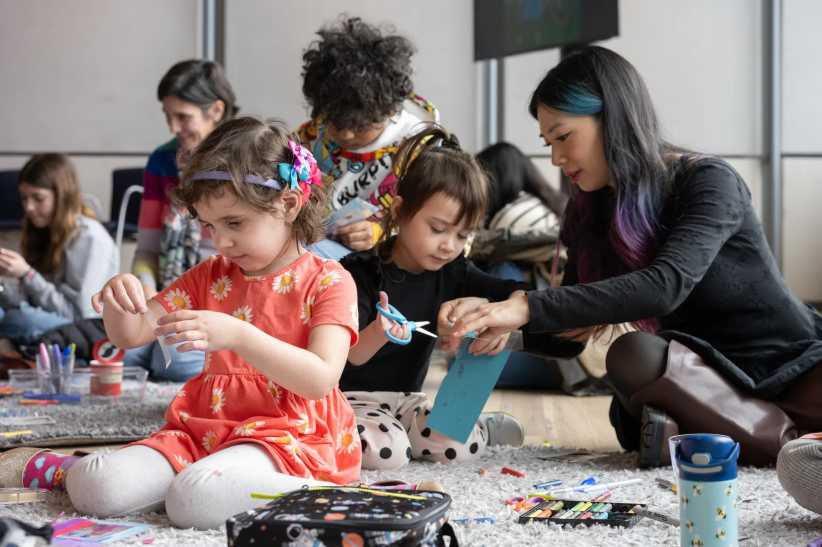During the Holocaust, six million Jews, including one-and-a-half million children, were killed. While remembering those victims, survivors were also honored during Yom Hashoah and a Holocaust memorial held by UJA Federation.
“It is one thing to know the books of history (and) the facts that transpired during the Holocaust,” Rabbi Scott Hoffman said during the invocation at North Shore Towers. “But, it’s quite another thing to hear the emotional experience of those who managed to brave and survive those events.”
Towers resident and Holocaust survivor Ilona Werdiger was honored during the event. In presenting her with a plaque, event co-chair Eneas Arkawy said it was “in recognition of your compassion, leadership, and outstanding services to Holocaust survivors and their families.”
“I accept this honor with humility on behalf of all the Jews who suffered, and survived like I did, as well in memory of the many who perished,” Werdiger said.
Werdiger escaped from the Belzec death camp when she was 15 years old. She also spent time in the Cracow-Plaszow Concentration Camp, Auschwitz and Birkenau. However, she was eventually selected to be sent to a munitions factory in Germany, and then later sent to Theresienstadt.
“On May 6, 1945, I was liberated by the Russian army, miraculously surviving, and to this day I do not know how,” she said. “When Eneas Arkawy approached me to be honored, I refused, but she was so convincing that I accepted the honor, feeling that as a living witness it is my obligation to tell the story.”
Arkawy and co-chair Manny Werdiger lit candles in honor of the victims. The first candle represented the one-and-a-half million children who were killed. The other five candles represented various camps and ghettos, including Auschwitz, Birkenau, Buchenwald, Dachau, Sobibor, Sachsenhausen, Stuttof, Belzec, Cracow Plaszow, Ravensbruck, Nordhausen, Chelmno, Theresienstadt, Mauthausen, Bergen, Belsen, Treblinka, Babi Yar, Drancy, Majdanek, Warsaw, Cracow and Lodz.
Guest speaker Ernie Michel, a former CEO of UJA and a Holocaust survivor, also spoke about his experiences. After having survived the Holocaust, Michel became a special correspondent for a German news agency during the Nuremberg Trials. With each of his bylines, Michel insisted that “Auschwitz Number 104995” was printed.
“I wanted the Germans to know that the person writing from Nuremberg was an Auschwitz survivor,” he said.
One of Michel’s vivid memories from his time as a correspondent involved Hermann Goering, who, after having read the articles and noticing that the writer was an Auschwitz survivor, requested a meeting. Michel agreed to the meeting but, after looking at Goering and seeing his arm outstretched for a handshake, left.
“I have never regretted having agreed to coming and, even more so, never regretted walking out without having said one single word during that time,” Michel said. “For me, the idea (that) a survivor … looked at his face and walked away from him was one of the greatest satisfactions that I can remember.”
































